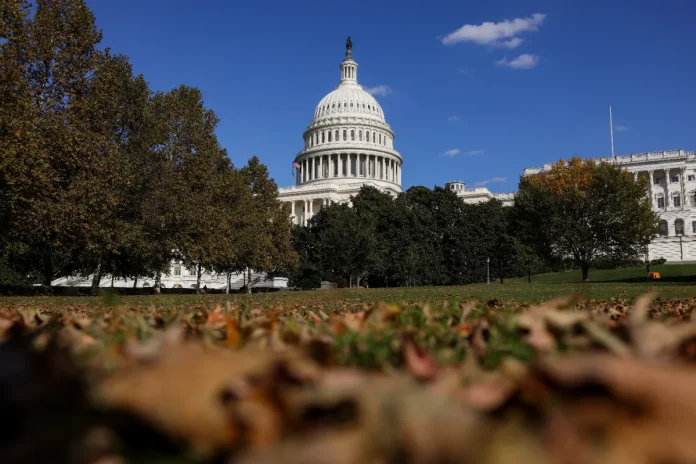US Senate votes to overturn Trump’s Brazil tariffs, sending measure to House where it faces likely rejection despite bipartisan support.
WASHINGTON: The Republican-led US Senate passed legislation to overturn President Donald Trump’s tariffs against Brazil on Tuesday.
This bill terminates the national emergency declared by Trump in July following Brazil’s prosecution of former president Jair Bolsonaro for an alleged coup attempt.
Lawmakers approved the Brazil measure by a 52-48 vote, marking the first of three tariff bills expected in the Senate this week.
Five Republicans crossed party lines to support the legislation, demonstrating rare bipartisan agreement.
The Senate is also preparing to vote on measures ending Trump’s tariffs on Canada and other global partners later this week.
The approved Brazil measure now moves to the Republican-controlled House of Representatives, where it is anticipated to be shelved.
House Republicans have consistently blocked previous legislative attempts to end Trump’s tariffs, suggesting a similar outcome for this bill.
Senate Democrats argue that Trump has used false emergency declarations to justify certain tariffs, harming American consumers.
They have pledged to continue forcing votes to reverse these trade actions as prices for affected goods continue rising.
Senator Tim Kaine, the Virginia Democrat who authored the resolution, emphasized the economic impact on American families during Senate debate.
Kaine stated that people are paying more for food, clothing, healthcare, energy, and building supplies due to Trump’s tariff policies.
The measure gained support from Republican Senators Susan Collins, Mitch McConnell, Lisa Murkowski, Rand Paul, and Thom Tillis.
Other Republicans expressed concern that the bill could undermine Trump’s efforts to negotiate new trade deals with other countries.
Brazilian officials have highlighted a $410 billion US trade surplus with Brazil over 15 years, questioning the tariff justification.
Trump’s executive order had accused Brazil of threatening US national security, foreign policy, and economy while politically persecuting Bolsonaro.
Bolsonaro was convicted of participating in an armed criminal organization, attempting to violently abolish democracy, and organizing a coup.
The former Brazilian president received a 27-year prison sentence but has repeatedly denied wrongdoing and appealed to Brazil’s Supreme Court.
Trump imposed 50% tariffs on most Brazilian imports and sanctioned the Brazilian Supreme Court justice overseeing Bolsonaro’s case in July.
The sanctioned judge had issued search warrants and restraining orders against Bolsonaro over allegations he sought Trump’s interference in his criminal case.
Bolsonaro faced accusations of plotting to prevent President Luiz Inacio Lula da Silva from taking office in 2023.
Trump indicated last week he might consider reducing tariffs on Brazil under appropriate circumstances.
The Senate previously passed legislation to end Trump’s tariffs against Canada in April but rejected another measure addressing his global tariffs.
Both earlier measures were ultimately voted down in the House, mirroring the expected fate of the current Brazil bill.
ALSO READ: US and China reach deal to avert tariffs on rare earths and soybeans








